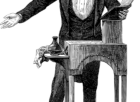Jane Austen films have captivated audiences for decades, offering a glimpse into the world of Regency-era England and bringing to life her timeless characters and stories

For those unfamiliar with this genre of film, here is an in-depth exploration of Jane Austen films, their historical development, and what makes them so beloved by fans.
Introduction to Jane Austen Films:
Jane Austen films refer to cinematic adaptations of the novels written by the renowned English author, Jane Austen. Often set in the late 18th and early 19th centuries, these films transport viewers to the world of Austen’s characters, exploring themes of love, societal expectations, and the complexities of relationships. Known for her wit and keen observations of human nature, Austen’s works have endured through generations and continue to be celebrated through film adaptations.
Historical Development of Jane Austen Films:

The history of Jane Austen films can be traced back to the early days of cinema. The first known adaptation of an Austen novel on the big screen was the 1938 film “Pride and Prejudice,” starring Greer Garson and Laurence Olivier. This adaptation set the stage for future cinematic interpretations, establishing the beloved formula of romantic tension, societal class struggles, and intricate character development.
Since then, numerous adaptations of Austen’s works have been produced, showcasing her enduring popularity and literary prowess. While some films have remained faithful to the original source material, others have taken creative liberties, exploring alternate perspectives or reimagining Austen’s narratives.
Notable Jane Austen Film Adaptations:
Over the years, several Jane Austen film adaptations have stood out, capturing the hearts of audiences worldwide. Some noteworthy films include:
1. “Pride and Prejudice” (1995):
This six-part BBC miniseries, starring Colin Firth as Mr. Darcy and Jennifer Ehle as Elizabeth Bennet, is a benchmark in Jane Austen adaptations. Known for its faithfulness to Austen’s novel and Firth’s iconic lake scene, this series remains a favorite among fans.
2. “Sense and Sensibility” (1995):
Directed by Ang Lee, this Academy Award-winning film features Emma Thompson, Kate Winslet, and Hugh Grant in a heartwarming tale of love and family. Its exquisite cinematography and stellar performances captured the essence of Austen’s novel perfectly.
3. “Emma” (1996):
Gwyneth Paltrow brought Jane Austen’s beloved character, Emma Woodhouse, to life in this adaptation. With its charming setting and witty dialogue, this film showcases Austen’s talent for satirical social commentary.
4. “Persuasion” (2007):
This adaptation, featuring Sally Hawkins and Rupert Penry-Jones, delves into the complexities of Anne Elliot’s character and her second chance at love. This emotionally resonant film is a must-watch for Austen enthusiasts.
The Influence and Endurance of Jane Austen Films:
Jane Austen films have had a lasting impact on popular culture, contributing to a renewed interest in Austen’s novels and influencing subsequent romantic dramas. The enduring appeal of Austen’s works lies in her ability to depict universal themes that still resonate with contemporary audiences.
Austen’s stories emphasize the importance of personal growth, the navigation of societal expectations, and the pursuit of true love. Her characters, often strong-willed and independent, provide role models that continue to inspire and captivate viewers.
Additionally, the settings and costumes portrayed in Jane Austen films showcase the elegance and grandeur of the Regency era, contributing to the overall visual appeal of these adaptations. From the opulent balls to the picturesque countryside, these films transport viewers to a time of elegance and refinement.
In conclusion, Jane Austen films hold a significant place in the world of cinema, captivating audiences with their nuanced characters, timeless stories, and exquisite settings. Whether it’s the enduring appeal of “Pride and Prejudice” or the charm of “Emma,” these adaptations continue to bring Austen’s world to life, appealing to both fans of her novels and newcomers alike. As audiences delve into the world of Jane Austen films, they discover a treasure trove of romance, wit, and social commentary that has stood the test of time.











